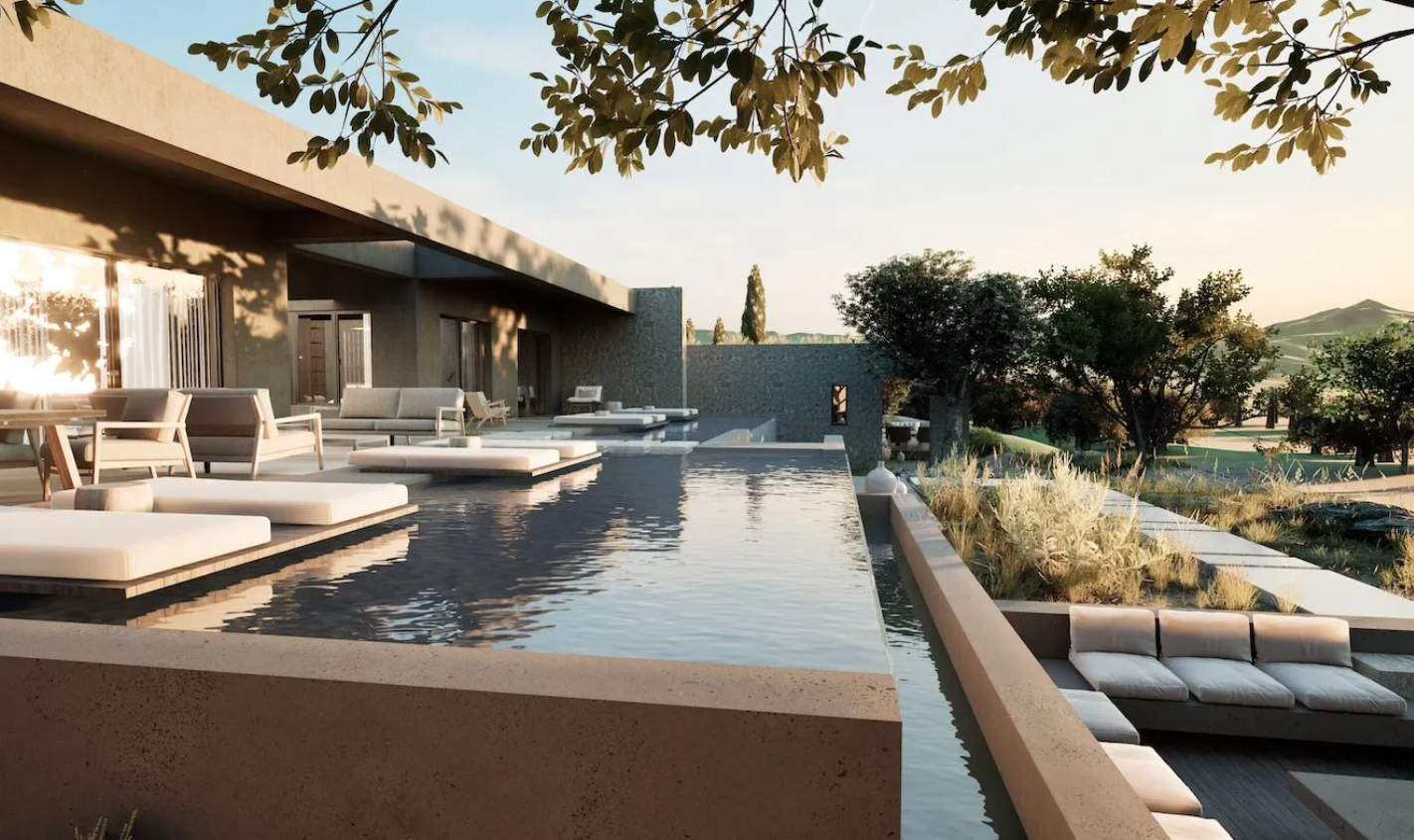A New Definition of Luxury
Greece is entering a new era of refined living — one where luxury is no longer about marble façades or beachfront exclusivity.
Today, true prestige is defined by space, silence and harmony with nature.
Developers are moving inland and upward, toward elevated plots surrounded by olive groves and hillsides. Instead of competing for the first line of the sea, they seek locations that preserve topography and vegetation, creating a sense of privacy and belonging.
This shift marks a turning point: from visual opulence to emotional balance.
What’s Changing
Preserving landscape and biodiversity
Bioclimatic architecture, structures embedded in the terrain, limited earthworks and the restoration of olive groves and native flora reduce energy use and maintain local ecosystems.
A strong example is Mandarin Oriental, Costa Navarino — a resort that blends into the Messinian hillsides, eliminates single-use plastics, replants thousands of trees and shrubs, and targets net-zero emissions by 2030.
Materials and adaptive reuse
More and more hotels are built from local stone, timber and reclaimed materials — or reimagined within existing industrial structures.
The Dexamenes Seaside Hotel in the Peloponnese has become an icon of sustainable design: former wine storage tanks transformed into modern suites, with most components fabricated from repurposed materials on site.
Not the first line — and that’s the point
The view of the sea is being replaced by the view of silence: terraces set among wild herbs, private gardens, hiking routes, spas using local botanicals.
Guests now travel not for the beach lounger but for authentic connection — to the land, the senses and themselves.
Sustainability as the New Standard
Sustainability is no longer a niche concept; it’s the foundation of Greece’s modern architectural identity.
Bioclimatic design, local resources, energy autonomy and respect for the environment now define high-end development.
Architecture doesn’t dominate nature — it listens to it. Buildings follow the terrain, absorb natural light, and integrate into the landscape with quiet confidence.
The Rise of the “Villa Hotel” Concept
One of the most significant trends in Greek hospitality is the hotel composed entirely of private villas.
It merges the comfort of a residence with the service of a five-star retreat: every villa features its own pool, terrace and garden, while the guest enjoys shared amenities such as restaurants, spas and concierge services.
This model reflects a shift toward privacy, wellness and natural immersion — the essentials of contemporary luxury.
Why It Works for Guests
Today’s traveler seeks not extravagance, but restoration.
They value calm, authenticity, and connection with the environment — the scent of thyme, the texture of stone, the silence of olive groves.
Local materials, slow gastronomy and open spaces create a sense of peace that no urban hotel can replicate.
It’s not simply about comfort — it’s about clarity, about feeling grounded and renewed.
Greece, with its luminous landscapes, diverse terrain and profound cultural heritage, is redefining luxury for the 21st century. From Kefalonia to Crete and from Folegandros to the Peloponnese, architecture here no longer seeks to impress but to belong — blending seamlessly with the land. Investors and travelers are drawn to projects that unite environmental awareness, local craftsmanship and timeless design, where true luxury is measured not by spectacle but by depth, stillness and authenticity.




